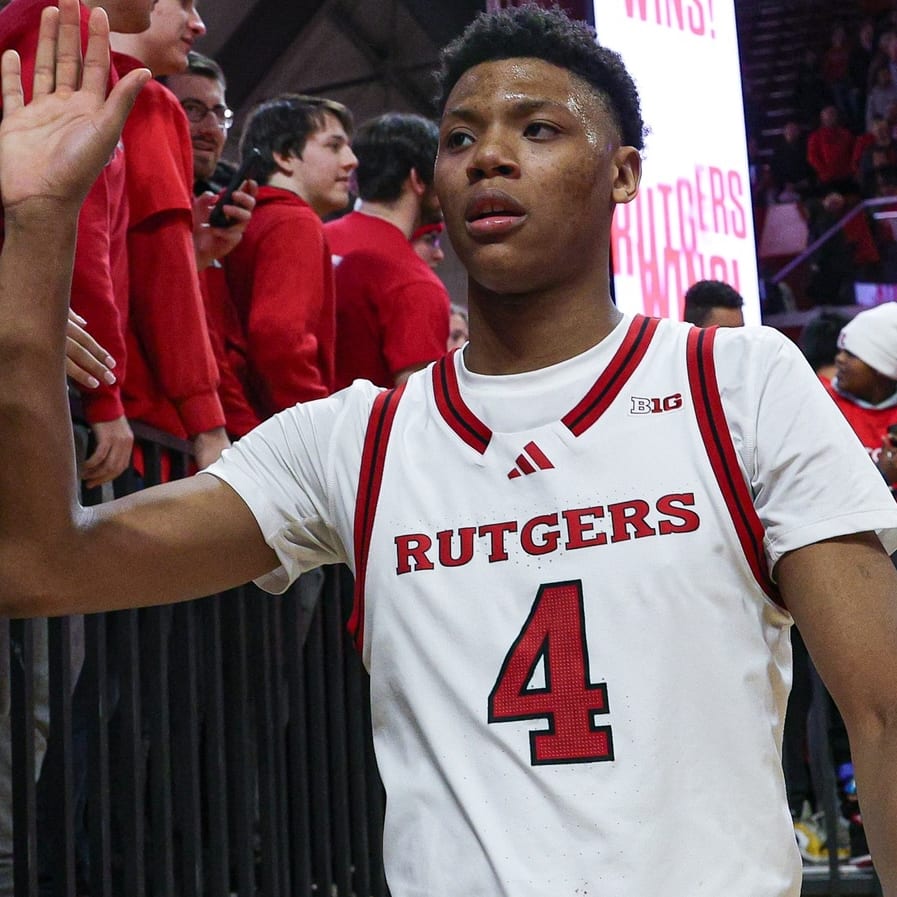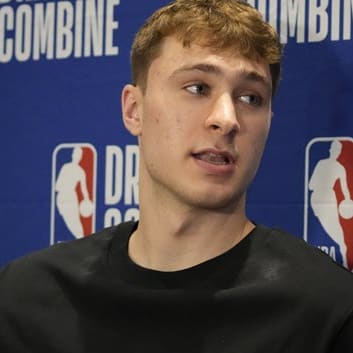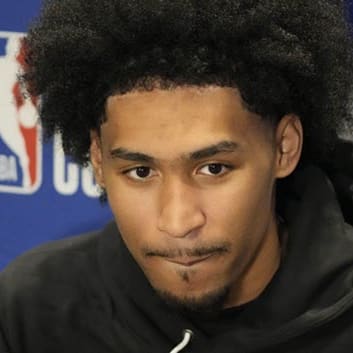This article is part of our Nerd Alert series.
Last year, this column and its author Carson Cistulli received the Fantasy Sports Writer's Association award for Basketball Writer of the Year. This article borrows from one of Carson's favorite topics of analysis: shot location data.
The excellent website HoopData is one of the places that records this data. Shots are classified in five distinct locations based on their distance from the hoop: three-pointers, 16-23 feet, 10-15 feet, 3-9 feet, or At Rim.
Considering one of the first things anybody who has picked up a basketball learns to do is make a layup, it shouldn't be surprising that the league shoots far better at the rim than anywhere else on the floor. So far this season, even with shooting down across the board, 62.2 percent of shots at the rim have been made. That number drops below 40 percent anywhere else on the floor -- including the relative bunnies of the 3-9 foot range.
That said, it also shouldn't be shocking that the proportion of attempts taken at the rim is as deciding a factor in a player's field goal percentage as anything else. The r-squared between percentage of shots attempted at the rim and field goal percentage comes out to 0.436. Out of all the things that go into a shooting percentage -- teammates, actual shooting stroke, et cetera -- 43.6 percent of the variance between players is determined by how often they get to the rim.
The other 56.4 percent is comprised of a myriad of
Last year, this column and its author Carson Cistulli received the Fantasy Sports Writer's Association award for Basketball Writer of the Year. This article borrows from one of Carson's favorite topics of analysis: shot location data.
The excellent website HoopData is one of the places that records this data. Shots are classified in five distinct locations based on their distance from the hoop: three-pointers, 16-23 feet, 10-15 feet, 3-9 feet, or At Rim.
Considering one of the first things anybody who has picked up a basketball learns to do is make a layup, it shouldn't be surprising that the league shoots far better at the rim than anywhere else on the floor. So far this season, even with shooting down across the board, 62.2 percent of shots at the rim have been made. That number drops below 40 percent anywhere else on the floor -- including the relative bunnies of the 3-9 foot range.
That said, it also shouldn't be shocking that the proportion of attempts taken at the rim is as deciding a factor in a player's field goal percentage as anything else. The r-squared between percentage of shots attempted at the rim and field goal percentage comes out to 0.436. Out of all the things that go into a shooting percentage -- teammates, actual shooting stroke, et cetera -- 43.6 percent of the variance between players is determined by how often they get to the rim.
The other 56.4 percent is comprised of a myriad of factors in the et cetera, including everybody's favorite: luck. As such, shot location data is an excellent way for us to try and filter through this luck. Even in this weird, lockout-shortened, schedule-compressed season, a clear and distinct pattern emerges when we look at the shot location data for individuals.
On these graphs, the y-axis shows how much more (or less) often a player is attempting shots at the rim in 2011-12 compared to 2010-11. The color of the bar shows whether or not (and based on the intensity of the color, how much) the player's field goal percentage has improved.
There are a few anomalies, of course -- oftentimes caused by players who both increase their attempts at the rim and their attempts from three-point land (an efficient shot but not as recognized by raw field goal percentage). But, for the most part, even through just 33-36 games, what we would expect holds true: to increase field goal percentage, players have to get to the rim more often.
At four of the five position, the leader in field goal percentage increase is among the top five in rim attempt proportion increase: Mario Chalmers at point guard (+9.4 percent field goals, +5.2 percent rim attempts), Gerald Wallace at small forward (+6.5 percent field goals, +16 percent rim attempts), Al Harrington at power forward (+4.9 percent field goals, +11.6 percent rim attempts) and Tyson Chandler at center (+6 percent field goals, +7.6 percent rim attempts). Raja Bell, the leader in field goal increase at shooting guard (+7.3 percent) did increase his rim attempts by 3.8 percent. Combined with a sharp drop in long twos, Bell has shot much better this year with Utah.
These players are all good bets to keep up their hot shooting throughout the second half of the season. Of all the aspects that go into creating a good shooter, where the shooter attempts his shots is the most controllable.
This same logic also gives us a few candidates to pick up their shooting in the second half of the season. Jameer Nelson (+6.9 percent shots at the rim), Landry Fields (+5.2 percent), Rudy Gay (+9.3 percent), Chris Bosh (+5.7 percent) and Channing Frye (+6.0 percent) have all sought out the rim with more regularity this season but haven't reaped the rewards from it yet. These five could see their field goal percentages shoot up in the second half if they can get the mid-range and three-pointers -- shots which succumb to the luck demons more than layups do -- to fall.
With fewer shots falling this year (44.3 percent overall for the league) as opposed to last season (45.9 percent), there aren't too many hot shooters to pick from who could fall victim to their own shot selection in the second half. That said, Carlos Boozer (+2.4 percent field goals despite -9.9 percent shots at the rim), Caron Butler (+1.1 percent despite -8.1 percent shots at rim) and Jose Calderon (+4.2 percent despite -8.9 percent shots at the rim) are prime candidates for a cold stretch or two in the season's final half.
NBA players are capable of great feats, and one four or five game hot streak can destroy these predictions. However, there's a reason coaches, announcers and analysts are constantly harping on the need for the basketball to go inside: players make those shots more often. Use that simple, obvious fact to your advantage with your fantasy rosters this spring and you could see your team thrive.










